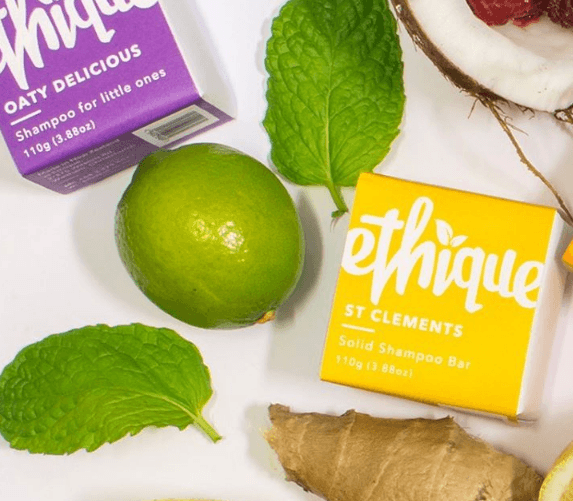
Can a small New Zealand startup revolutionize the personal care products industry? Brianne West, founder of four-year-old Ethique, believes so. Frustrated by the waste that products such as shampoo can generate, West is striving to convince consumers that they need to change how they approach personal care.
One of the absurdities of the personal care and consumer packaged goods (CPG) industries is that these companies ship products across borders, and across the world, that are often mostly water. This is especially true of body washes, shampoos and conditioners, the vast majority of which can contain anywhere from 80 to 90 percent water. Many of these companies often scam consumers into thinking their products are environmentally friendly and beneficial for skin and hair.
After all, ingredients such as green tea for its caffeine or tropical extracts for moisturizing effects sound like a no-brainer. Then you have to put on glasses to read the ingredients, and you'll often discover that there is more fragrance than extracts and elixirs in these products. Add the fuel consumed hauling these glorified bottles of water around, in addition to the plastic bottles that end up in landfill, and you have an industry that has a long road ahead until it can say it is truly sustainable. CPG companies such as Unilever say they are working on this problem, but the evidence suggests there is more garbage piling up worldwide than clear progress on waste diversion.
Ethique’s products eliminate both the pesky plastic and water. Instead of the cylinders of plastic to which we are accustomed, the company shapes shampoo, conditioner and, of course, soap, into bars. Ingredients include cacao butter, coconut oil, spices, fruit extract and even clay. Ethique also says its products can be used for a bevy of purposes. 'The Guardian' conditional bar, for example, should also suffice for shaving or moisturizing. Products for babies include candelilla and lavender.
The selling point of these products is that you are paying for natural ingredients — not water. According to the company, one of the company’s shampoo bars is equivalent to 10 ounces (300 milliliters) of the liquid alternative. In an interview with Forbes last week, West claimed the company's products have prevented 60,000 plastic bottles from ending up in landfill so far. Included in the company’s list of examples detailing how strongly it has committed to sustainability, Ethique also says that its packaging is compostable.
If there is one personal care startup that has the potential to disrupt a stodgy industry, and score venture capital funding so that it can expand, Ethique appears to the one that is at or near the front of the line. The company now ships within New Zealand and Australia; it is tempting to persuade consumers to ditch the bottle by pitching a sampler pack that costs NZ $14 (US$10) and is sent with free shipping – but for now, that offer is only available within those two countries.
Image credit: Ethique/Instagram

Leon Kaye has written for 3p since 2010 and become executive editor in 2018. His previous work includes writing for the Guardian as well as other online and print publications. In addition, he's worked in sales executive roles within technology and financial research companies, as well as for a public relations firm, for which he consulted with one of the globe’s leading sustainability initiatives. Currently living in Central California, he’s traveled to 70-plus countries and has lived and worked in South Korea, the United Arab Emirates and Uruguay.
Leon’s an alum of Fresno State, the University of Maryland, Baltimore County and the University of Southern California's Marshall Business School. He enjoys traveling abroad as well as exploring California’s Central Coast and the Sierra Nevadas.














